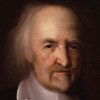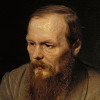“ Men are naturally led to ascribe to those mysterious beings, whatever they are, which happen, in any country, to be the objects of religious fear, all their own sentiments and passions. They have no other, they can conceive no other to ascribe to them. ”
Adam Smith, The Theory of Moral Sentiments (1759). copy citation
| Author | Adam Smith |
|---|---|
| Source | The Theory of Moral Sentiments |
| Topic | passion fear |
| Date | 1759 |
| Language | English |
| Reference | |
| Note | |
| Weblink | https://en.wikisource.org/wiki/The_Theory_of_Moral_Sentiments |
Context
“This reverence is still further enhanced by an opinion which is first impressed by nature, and afterwards confirmed by reasoning and philosophy, that those important rules of morality are the commands and laws of the Deity, who will finally reward the obedient, and punish the transgressors of their duty.
This opinion or apprehension, I say, seems first to be impressed by nature. Men are naturally led to ascribe to those mysterious beings, whatever they are, which happen, in any country, to be the objects of religious fear, all their own sentiments and passions. They have no other, they can conceive no other to ascribe to them. Those unknown intelligences which they imagine but see not, must necessarily be formed with some sort of resemblance to those intelligences of which they have experience. During the ignorance and darkness of pagan superstition, mankind seem to have formed the ideas of their divinities with so little delicacy, that they ascribed to them, indiscriminately, all the passions of human nature, those not excepted which do the least honour to our species, such as lust, hunger, avarice, envy, revenge.”
source



